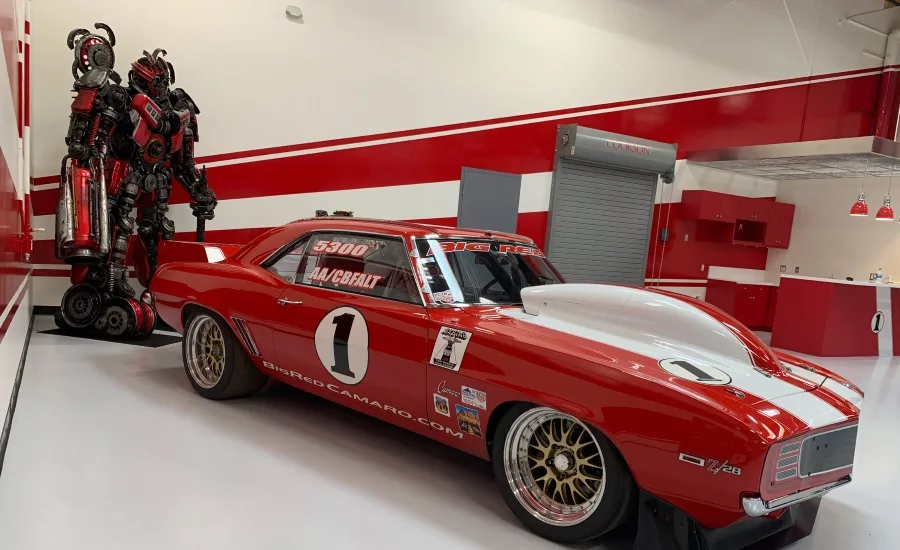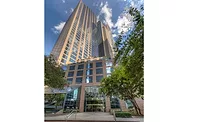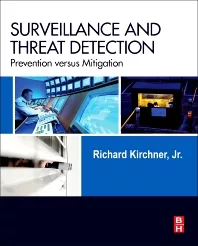Big Red Camaro racing car installs video surveillance for protection

The legendary Big Red Camaro is a serious, open-road racing car that has been setting records at the highest level for over 30 years. Since they started on the project back in 1987, Richard Gottlieb and his father Dan Gottlieb have invested countless hours as well as millions of dollars upgrading, refurbishing, restoring and improving the performance of the car. To protect their investment and ensure the continued success of the racing team, the Gottliebs built a new 14,000 square foot facility featuring a state-of-the-art video surveillance system with Hanwha Techwin cameras to help keep this priceless piece of American racing history safe.
It was clear from the beginning of the project that the site for the new facility would pose unique security challenges. Because of the kind of work being done on the car, which includes welding as well as working with toxic and highly volatile substances like racing fuels, the car had to be housed in an area zoned for light industry. These areas aren’t typically known for high security.
To help solve these challenges, Richard Gottlieb hired Howard Levinson of Expert Security to design and implement a new security system. The camera selection was tailored to match the security requirements for each area. For the back of the facility, which is isolated and has several dumpsters, the team installed cameras with lowlight operability. They also deployed in-camera masking to prevent passing trains from triggering motion alerts. Out front, the team deployed Wisenet PNM-9030V multi-sensor panoramic cameras from Hanwha to provide 180-degree views.
In addition to protecting this priceless car, the team also wanted to open up live feeds if there was major maintenance or customization activity. The goal was to use the new video surveillance system for both security and entertainment. As Josh Oliver, Director of Marketing and PR for The Big Red Camaro, explains, “It is important to maintain The Big Red Camaro as a brand. This complicated the requirements because the system had to be flexible enough to ensure security as well as a high level of visibility for the car.”
Each camera records a set number of frames per second, regardless of the situation. If the analytics in the camera detects movement or a possible threat, however, both the frame rate and image quality are automatically increased. This means that, when a potential incident starts, the security system adjusts to improve the resolution of its video recordings.
With ease-of-use in mind, the chipset in the 180-degree cameras allow analytics to be set up for the entire field of view. As Levinson explains, “the Hanwha chipset made protecting the perimeter of the facility easy. All we needed to do to set up line crossing analytics around the site was to simply draw a line directly across the stitched together 180-degree view.” With any other multi-sensor, panoramic camera, users have to draw their lines on images from each individual sensor and then line them up afterwards to make sure everything is accurate.
In addition to the three Wisenet PNM-9030V panoramic cameras, the site also includes five Wisenet XNO-8020R bullet cameras, nine XND-6010 dome cameras, two QND-7030R dome cameras, and one QNO-7080R bullet camera.
Looking for a reprint of this article?
From high-res PDFs to custom plaques, order your copy today!







